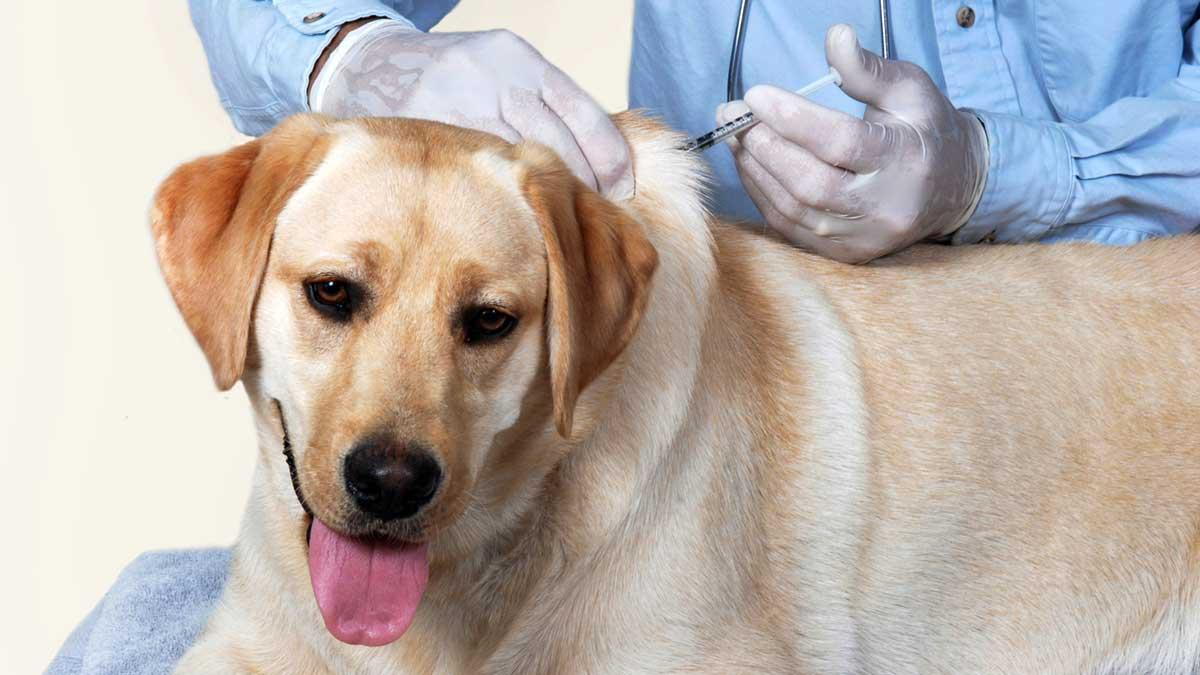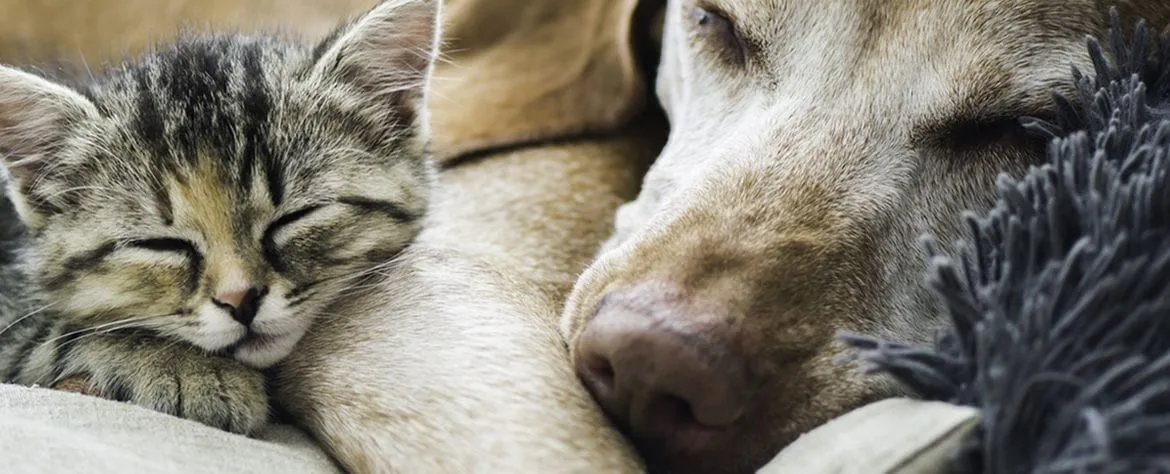
Canine Parvovirus (CPV) remains one of the most significant health threats to domestic dogs, particularly unvaccinated ones of any age, including puppies. The disease is notorious for its aggressive nature, with a high rate of morbidity if not promptly and appropriately treated. At Phoenix Veterinary Center, we're dedicated to providing our clients and their furry family members with the knowledge and care necessary to combat this dangerous illness. This blog delves into the intricacies of Parvo treatment, highlighting its critical aspects and the importance of preventive measures, including the highly effective parvovirus vaccine.
Understanding Canine Parvovirus
Canine Parvovirus is a highly contagious viral illness that strikes dogs of all ages but is particularly deadly for puppies who haven't completed their vaccine series. The virus targets the body's rapidly dividing cells, such as those lining the intestinal tract, leading to severe symptoms like vomiting, diarrhea, and loss of appetite. Infected dogs can shed the virus in large quantities in their feces, making any environment they've been in potentially hazardous to other susceptible dogs.
Is Parvo Contagious To Humans?
Parvo, a virus that significantly impacts dogs, particularly puppies, is a topic of concern for many pet owners, especially when it comes to the potential for human infection. The parvovirus, responsible for causing severe illness in dogs, including symptoms like vomiting, diarrhea, and blood loss, does not pose the same threat to humans. This virus specifically targets canines, and while it's a highly contagious and serious condition requiring prompt treatment in dogs, the infection is species-specific. Treatment for parvo in dogs focuses on supportive care to manage symptoms and prevent secondary infections, highlighting the importance of early detection and intervention.
Vaccination plays a crucial role in preventing parvovirus infection in puppies, typically beginning within their first few weeks of life. It's essential for puppy owners to adhere to a vaccination schedule to protect their pets from this dangerous virus. Although parvo cannot be transmitted to humans, understanding the signs of this infection in puppies is critical for ensuring they receive the necessary treatment promptly. This includes recognizing early signs of the virus, such as lethargy and loss of appetite, and seeking veterinary care immediately. While humans are not at risk of contracting parvo from their pets, maintaining vigilance in vaccination and treatment protocols is vital in safeguarding the health of puppies and preventing the spread of the virus within the canine population.
The Importance of Vaccination
Preventing CPV infection is paramount and much more manageable than treating the disease. The core vaccination, including the approved three-year parvovirus vaccine, is a cornerstone of preventing the spread of this virus. Vaccination schedules typically begin at weeks of age and continue until the puppy has received the full vaccine series, followed by the next booster vaccine to ensure continuous protection. This preventive measure is especially crucial for breeds like German Shepherd dogs and Labrador Retrievers, known to be more susceptible to the virus.
Recognizing the Signs of Parvo
Early detection of CPV can significantly influence the outcome of the treatment. The initial signs of Parvo include severe vomiting, diarrhea (often bloody), lethargy, and loss of appetite. These symptoms may appear rapidly, usually within 5 to 10 days following the incubation period after exposure to the virus. Dogs may also experience abdominal pain and exhibit signs of severe illness, such as high fever and low white blood cell counts, indicative of a weakened immune system.
Diagnosing Parvo
Upon suspecting CPV, a veterinarian will perform a physical exam and may order a simple in-clinic test to look for the viral antigen in the feces of the affected dog. Additional tests, such as blood work, can assess the severity of the disease by evaluating white blood cell counts, blood proteins, and blood serum levels. These diagnostic tools are crucial for confirming CPV infection and determining the best course of action for treatment.
Treatment Options for Parvo
The treatment for Canine Parvovirus is aggressive and often requires hospitalization. The primary goal is to support the dog's body through the most severe disease phases while combating dehydration, electrolyte imbalances, and secondary infections. Treatment options may include:
- Administration of Intravenous Fluids: Essential for correcting dehydration and electrolyte imbalances.
- Antibiotic Therapy: Used to prevent or treat secondary bacterial infections.
- Medications: To control vomiting and diarrhea and to protect the intestinal tract.
- Nutritional Support: Critical for recovery, even if it means feeding through a tube.
- Blood Transfusions: In cases of severe blood loss or to boost the immune response.
The cost of treatment can vary widely depending on the severity of the disease and the length of the hospital stay. However, the investment in saving a beloved pet's life is often seen as invaluable by many pet owners.
Dogs Most Susceptible To Parvovirus
Certain dogs are more susceptible to parvovirus, an affliction that requires immediate and aggressive treatment to prevent severe outcomes. Puppies, especially those between six weeks to six months old, are at the highest risk for parvo because their immune systems are not fully developed. This vulnerability underscores the critical nature of starting a vaccination schedule during the early weeks of a puppy's life. The signs of parvo, including vomiting, diarrhea, and blood in the stool, can rapidly deteriorate a puppy's health, making early detection and treatment vital. Puppies within this age range need to be closely monitored for any signs of infection, and any suspicion of parvo should prompt an urgent visit to the vet for diagnosis and treatment.
The risk of parvovirus infection isn't distributed equally among all dogs. Certain breeds, such as Rottweilers, American Pit Bull Terriers, Labrador Retrievers, Doberman Pinschers, and German Shepherds, are known to be more susceptible to the virus. The reasons for this increased susceptibility can include genetic factors that affect their immune response to the virus. Treatment protocols for parvo can vary based on the severity of the infection but typically include hospitalization, intravenous fluids to combat dehydration, and medications to control symptoms. Given the aggressive nature of the virus and its profound impact on a dog's body, including significant blood loss and a high risk of secondary infections, the treatment of puppies and dogs susceptible to parvovirus remains a paramount concern. Early vaccination and immediate medical intervention upon the signs of parvo can significantly improve the prognosis for affected puppies.
Tips For Responsible Dog Owners
Responsible dog ownership extends beyond providing food, water, and shelter; it encompasses ensuring the health and well-being of your canine companion. Whether you have a puppy or an adult dog, regular visits to the veterinarian are essential for maintaining optimal health and early detection of any potential issues, including the risk of becoming an infected dog. Here are some tips to keep your pup healthy and happy:
Regular Veterinary Visits
- Schedule annual check-ups for adult dogs and more frequent visits for puppies.
- Use these visits to update vaccinations, perform health screenings, and discuss any concerns with your veterinarian.
Early Detection of Diseases
- Learn the clinical signs of common diseases affecting dogs, such as lethargy, loss of appetite, vomiting, or diarrhea.
- Observe your dog daily for any unusual behavior or symptoms and consult your veterinarian immediately if you notice anything concerning.
Vaccination and Disease Prevention
- Ensure your puppy completes their vaccination series on time to protect against diseases like parvovirus.
- For adult dogs, maintain regular vaccination boosters as recommended by your veterinarian.
Environmental Hygiene
- Use a bleach solution to clean areas where your dog spends a lot of time, especially if you know an infected dog has been in the same space.
- Regularly wash your dog's bedding, toys, and feeding bowls to prevent the spread of infectious diseases.
Monitoring and Preventing the Spread of Diseases
- Keep your dog away from areas frequented by many other dogs until they are fully vaccinated, especially if there's a risk of encountering an infected dog.
- Be aware of the signs of severe cases, such as blood in the stool or extreme lethargy, and act swiftly by seeking veterinary care.
Building a Relationship with Your Veterinarian
- Choose a veterinarian you trust and feel comfortable communicating with about your dog's health.
- Consider your veterinarian as a partner in managing your dog's health, from puppyhood through their adult years.
Following these tips can help ensure that you're providing the best possible care for your dog, keeping them healthy, happy, and part of your family for many years to come.
Preventing Parvo
Prevention remains the most effective approach to combat Canine Parvovirus. This includes following a recommended vaccination schedule, keeping young and unvaccinated dogs away from less public environments until fully vaccinated, and maintaining a clean environment using a bleach solution to kill the virus.
At Phoenix Veterinary Center, we understand the emotional and financial strain that Parvo can put on dog owners. Our team is committed to providing education on this severe disease, preventive care through vaccination, and comprehensive treatment options for those pets already affected. Remember, early detection and treatment are crucial in the fight against Parvo, saving lives and preventing further spread of this devastating virus.
Ready to Ensure Your Furry Friend's Health and Happiness?
Your dog relies on you for love, care, and protection. Don't wait until it's too late to prioritize their health. Schedule a wellness check with us today, and let's work together to keep your furry friend safe, healthy, and happy for years to come. From vaccinations to preventive care, our dedicated team at Phoenix Veterinary Center is here to support every step of your journey together.
Contact Phoenix Veterinary Center if you think your dog has parvovirus or they need their vaccinations. To request an appointment for your furry four-legged family member, call (602) 559-5500 today!



